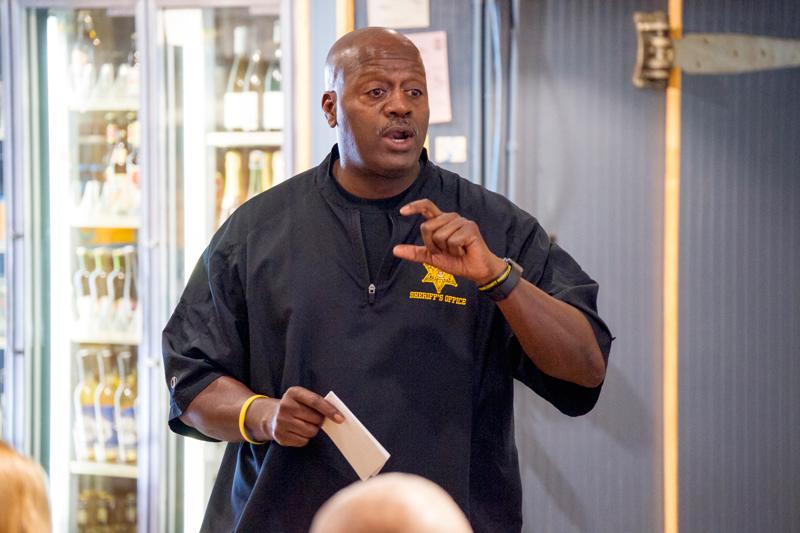The city council elections are unlikely to yield any surprises (see p. 27). But two millage votes will critically impact education and social services. If both pass, the owners of a house with a taxable value of $150,000 would pay $150 annually for each.
For the Washtenaw Intermediate School District’s 0.9719 mill levy, “the operative word is ‘renewal,'” says superintendent Scott Menzel. “Voters last approved the millage in 2011. If they approve it again, it’ll be good until 2025.
“The millage generates $15 million, and the money can only be used for special education,” Menzel explains. “We’re mandated by federal law to provide special education services to our students, and if the millage isn’t approved, the $15 million would have to come out of the general operating millage.”
The superintendent is “fairly optimistic” the renewal will be approved. “Voters have been very generous with special education, and we’re hoping people will see the millage as essential.”
The second proposal, by Washtenaw County, would add 1 mill to pay for mental health services and police contract services, with the police portion returned to Ann Arbor and other cities that have their own police forces (“Jerry Clayton’s Vision,” May). The campaign got off to a late start (Up Front, September), but in October Ann Arbor county commissioner Andy LaBarre described progress as “quietly good. We are rolling out the materials that explain the millage, and, near as I can tell, it’s resonated. It’s a good sign, but ‘hard slog’ is still the term to use.”
The slog got harder in mid-October, when Dexter resident William Gordon and Ann Arbor political activist Kathy Griswold launched a ballot committee called “No to Illegal Millage.” Gordon says that state law doesn’t authorize one municipality to give tax proceeds to another, and that giving refunds to cities with their own departments could be an “end run” around tax limits in city charters. Griswold says they formed the committee because time was short, but if the millage passes, they may challenge it in court.
LaBarre finds the opposition baffling, saying the millage would be “incredibly helpful” to smaller communities that pay the sheriff to provide police services. “It would give them eight years” of price stability, he says. If it fails, policing contracts will cost more, and contracting communities may not be able to afford “the same level of safety.”
LaBarre thinks the case for a local tax for mental health services is even stronger. With the state slashing funding, he notes that Ottawa and Jackson counties already have passed millages to sustain services. “Every person we’ve spoken to has said they’re supportive of more money for mental health.”
Will having two millage votes on the same ballot affect their chances? Menzel says it’s “hard to predict. It depends on who turns out to vote. What’s the voter appetite for an increase and a renewal?”
LaBarre gives the school millage a “70-90 percent chance that it will pass.” Because the county millage is more complex, he puts its chances at 50-50.
He’s hoping the sheriff’s advocacy will help. “Jerry Clayton is getting out there. He’s holding town halls. He’s providing the example of leadership. Jerry is a leader and a doer. If [the millage] fails, it will be my fault.”


